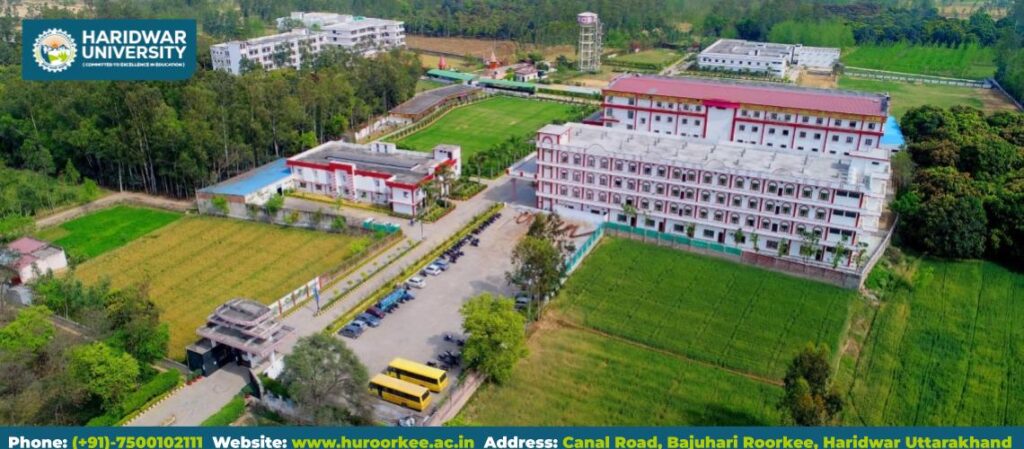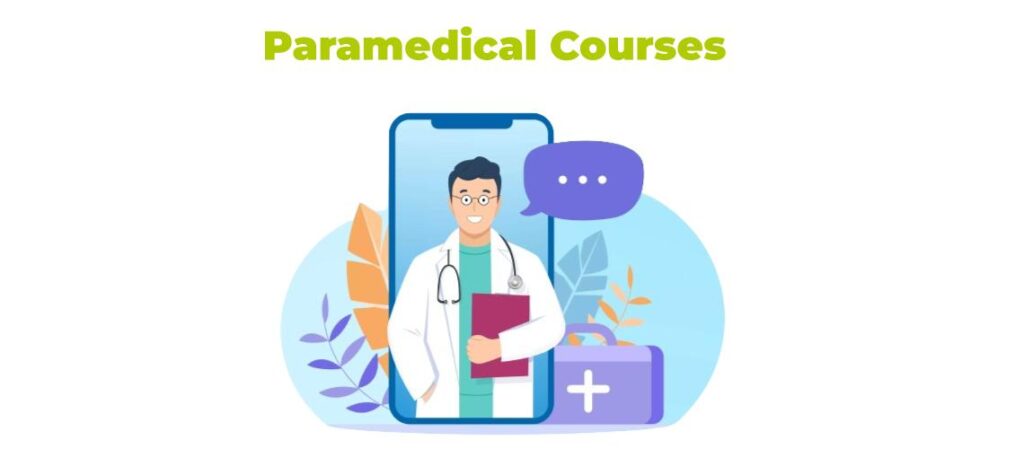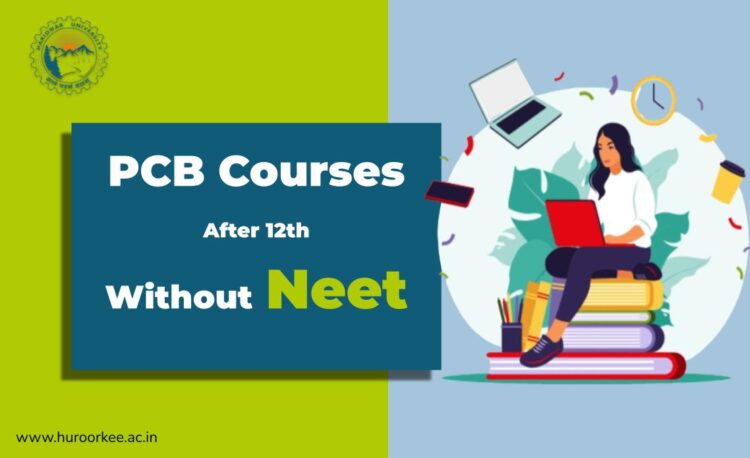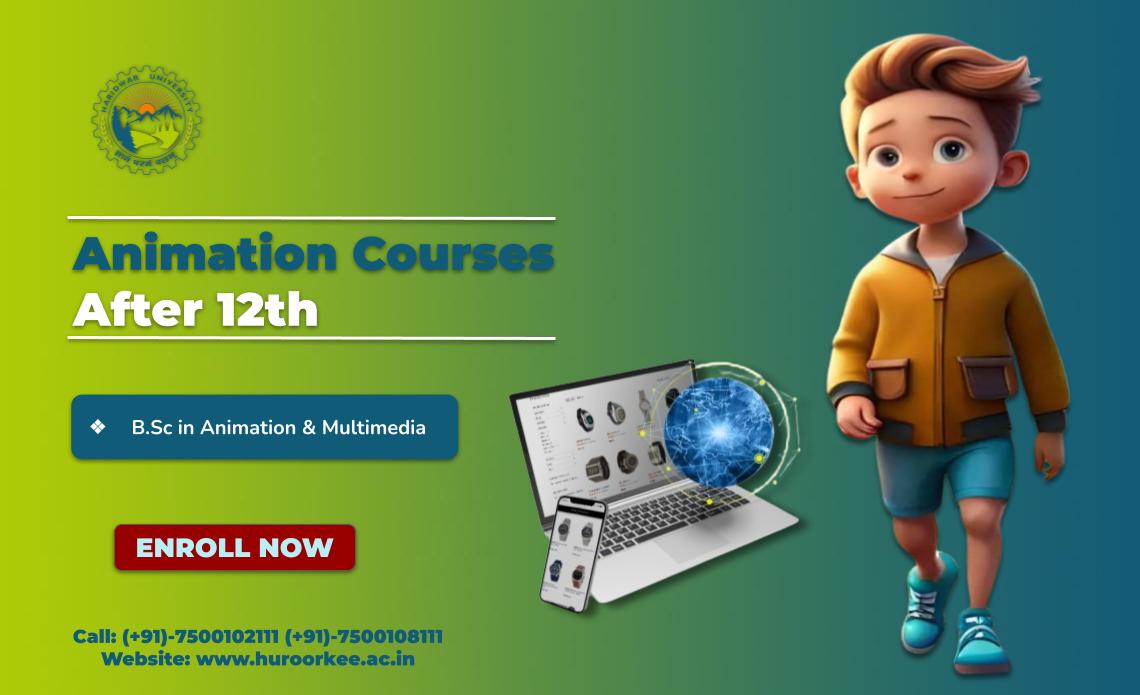If you have completed your 12th standard with Physics, Chemistry, and Biology (PCB) but do not wish to pursue the NEET (National Eligibility cum Entrance Test) for medical courses, there are still several career options available to you in the field of biology and life sciences. “PCB career options without NEET” offer a wide array of opportunities for students with a background in Physics, Chemistry, and Biology. From Biotechnology and Pharmacy to Nursing and Veterinary Sciences, these fields provide diverse and rewarding career paths without the need for NEET qualification. Here are some courses you can consider:
Bachelor of Science (B.Sc.)
1. Bachelor of Science (B.Sc.) in Biology/Biological Sciences:
Duration: 3 years
Description: You can pursue a B.Sc. degree in biology or biological sciences, which covers various aspects of biology, including microbiology, genetics, biotechnology, botany, and zoology.
2. Bachelor of Science (B.Sc.) in Biotechnology:
Duration: 3 years
Description: Biotechnology is an interdisciplinary field that combines biology with technology. A B.Sc. in Biotechnology covers subjects such as molecular biology, genetics, biochemistry, microbiology, and bioinformatics.
3. Bachelor of Science (B.Sc.) in Microbiology:
Duration: 3 years
Description: Microbiology focuses on the study of microorganisms such as bacteria, viruses, fungi, and protozoa. A B.Sc. in Microbiology covers topics like microbial physiology, immunology, virology, and environmental microbiology.
Are you intrigued by the microscopic organisms that play a crucial role in shaping our world? Haridwar University invites you to explore the captivating field of microbiology through our Bachelor of Science (B.Sc.) program. Nestled amidst the serene surroundings of Uttarakhand, Haridwar University offers a dynamic learning environment where students can delve into the mysteries of microbes and their impact on human health, agriculture, and the environment.
4. Bachelor of Science (B.Sc.) in Environmental Science:
Duration: 3 years
Description: Environmental Science is a multidisciplinary field that examines the interactions between humans and the environment. A B.Sc. in Environmental Science covers topics such as ecology, conservation, pollution control, and sustainable development.
5. Bachelor of Science (B.Sc.) in Agricultural Sciences:
Duration: 3 years
Description: Agricultural Sciences focus on the study of agriculture, including crop production, soil science, agronomy, horticulture, and agricultural economics.
6. Bachelor of Science (B.Sc.) in Forensic Science:
Duration: 3 years
Description: Forensic Science involves the application of scientific principles and techniques to solve crimes and legal issues. A B.Sc. in Forensic Science covers areas such as forensic biology, forensic chemistry, forensic toxicology, and forensic anthropology.
7. Bachelor of Science (B.Sc.) in Fisheries Science:
Duration: 3 years
Description: Fisheries Science involves the study of aquatic organisms and their habitats. A B.Sc. in Fisheries Science covers topics such as fish biology, aquaculture, fishery management, and marine biology.
8. Bachelor of Science (B.Sc.) in Nutrition and Dietetics:
Duration: 3 years
Description: Nutrition and Dietetics focus on the study of food, nutrition, and its impact on human health. A B.Sc. in Nutrition and Dietetics covers topics such as human physiology, biochemistry, clinical nutrition, and food science.
Deciding whether Haridwar University, known as one of the best colleges in Uttarakhand, is the best fit for your Bachelor of Science (B.Sc.) in Nutrition and Dietetics depends on your individual needs and priorities.

These are just a few examples of courses available in the field of biology and life sciences after completing your 12th standard with PCB. Depending on your interests and career goals, you can choose a course that aligns with your aspirations and provides opportunities for further education and career advancement.
Important factors to consider:
- Salary potential: While these careers offer high earning potential, actual salaries can vary depending on factors like experience, location, skillset, and the specific company/industry.
- Education and skills: Most of these high-paying careers require a college degree, often in specialized fields like science or healthcare.
- Demand and competition: Some fields may be more competitive than others, so strong academic performance, relevant skills, and internships are crucial for landing a good job.
Remember, choosing a career path is about more than just salary. Consider your interests, skills, and long-term goals to find a career that’s both fulfilling and financially rewarding.

Paramedical Courses
Paramedical courses offer specialized training in various healthcare professions and are a popular choice for students interested in healthcare but not willing to pursue traditional medical degrees like MBBS or BDS. Here are some paramedical courses that you can consider after completing your 12th standard:
Medical Laboratory Technician (MLT):
Medical Laboratory Technicians perform laboratory tests and procedures to assist in the diagnosis, treatment, and prevention of diseases.
Course Duration: Diploma courses typically last for 1-2 years, while degree courses (B.Sc. MLT) usually last for 3-4 years.
Radiographer (Radiologic Technologist):
Radiographers use X-rays, CT scans, MRI, and other imaging techniques to produce images of the internal structures of the body.
Course Duration: Diploma courses generally last for 2 years, while degree courses (B.Sc. Radiography) last for 3 years.
Operation Theatre Technician (OTT):
Operation Theatre Technicians assist surgeons and other medical staff during surgical procedures by preparing the operating room, sterilizing equipment, and assisting with patient care.
Course Duration: Diploma courses typically last for 1-2 years.
Anesthesia Technician:
Anesthesia Technicians assist anesthesiologists in administering anesthesia to patients before surgery and monitor patients’ vital signs during procedures.
Course Duration: Diploma courses generally last for 1-2 years.
Dialysis Technician:
Dialysis Technicians operate and maintain dialysis machines used to treat patients with kidney failure or renal disease.
Course Duration: Diploma courses typically last for 1-2 years.
These are just a few examples of paramedical courses available after the 12th standard. Many institutes and universities offer a variety of paramedical courses with different specializations and durations.
To pursue these courses, you’ll need to research institutes or universities offering paramedical programs, check their eligibility criteria, application procedures, and course details. Additionally, consider factors such as accreditation, faculty expertise, infrastructure, and placement opportunities when selecting a course and institute.

Diploma Courses
Diploma courses provide vocational training in specific fields and are typically shorter in duration compared to degree programs. Here are some diploma courses in vocational areas such as Food Technology, Agriculture, Horticulture, and Fisheries:
Diploma in Food Technology:
This course focuses on the application of science and technology to the processing, preservation, packaging, and distribution of food products.
Course Duration: Typically ranges from 1 to 2 years.
Diploma in Agriculture:
This course covers various aspects of agriculture, including crop production, soil science, agricultural engineering, agribusiness management, and agricultural extension.
Course Duration: Usually lasts for 2 to 3 years.
Diploma in Horticulture:
This course emphasizes the cultivation, management, and study of fruits, vegetables, flowers, ornamental plants, and landscaping.
Course Duration: Typically ranges from 1 to 2 years.
Diploma in Fisheries:
This course focuses on the management and sustainable development of fisheries resources, aquaculture practices, fish breeding, fish processing, and fisheries management.
Course Duration: Usually lasts for 1 to 2 years.
These diploma courses provide practical training and skills necessary for employment in their respective fields. Upon completion of the diploma program, graduates can pursue entry-level positions in industries related to food technology, agriculture, horticulture, and fisheries. They may also choose to further their education by pursuing higher-level degrees or certifications for career advancement.
When considering a diploma course, it’s essential to research institutes or colleges offering the program, check their accreditation, faculty expertise, infrastructure, and placement opportunities. Additionally, evaluate the curriculum to ensure it aligns with your career goals and interests.
High Salary Courses After 12th Science PCB Without NEET
Sure! Here is a table listing high salary courses you can consider after 12th science PCB without NEET, along with their average salary in India:
| Courses | Average Salary |
|---|---|
| B.Sc. Biotechnology | ₹3 – 8 Lakhs p.a. |
| B.Sc. Microbiology | ₹4 – 6 Lakhs p.a. |
| B.Sc. Biochemistry | ₹4 – 7 Lakhs p.a. |
| B.Sc. Nursing | ₹4 – 5 Lakhs p.a. |
| B.Pharm (Bachelor of Pharmacy) | ₹3.5 – 5 Lakhs p.a. |
| B.Sc. Medical Laboratory Technology (MLT) | ₹3 – 4 Lakhs p.a. |
| B.Sc. Nutrition and Dietetics | ₹4 – 5 Lakhs p.a. |
| B.Sc. Psychology | ₹3 – 5 Lakhs p.a. |
Other options:
- You could also consider pursuing a B.Sc. in a related field, such as chemistry, physics, or mathematics. These degrees can provide you with a strong foundation in science and open up a variety of career options.
- You could also take a gap year to volunteer, travel, or gain work experience. This can help you to decide what you want to do with your future.
Remember:
- The best course for you will depend on your interests, skills, and career goals.
- Do your research to find a course that is a good fit for you.
- Talk to people who work in the field you are interested in to learn more about what it is like.
I hope this information is helpful!






